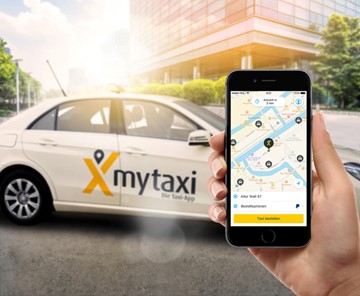In Johnson v Transopco UK Ltd, Johnson (J) brought a number of claims after the relationship with Transopco UK Ltd. ended. For his claims, he had to be at least classed as a ‘worker’ (as defined in s230(3) Employment Rights Act 1996). At a preliminary hearing, his claims were dismissed as the Employment Tribunal found that he was in business on his own account, with Transopco UK Ltd. being his ‘client or customer’.
The Employment Appeal Tribunal (EAT) upheld the Employment Tribunal’s decision that J was not a ‘worker’.
The EAT held that the Tribunal was entitled to rely upon its findings that the driver could:
- provide his services as infrequently or as often as he wanted;
- dictate the timing of those services; and
- was not subject to control by the operator in the way in which services were undertaken.
The Tribunal was also allowed to take into account the fairly small proportion of work that the driver did through the app, compared to the amount he made on his own accord.
Background/Timeline
•2014 onwards: Johnson (J) worked full time in business on his own account as a black-cab driver in London.
•February 2017: J registered as a driver on Transopco UK Ltd’s Mytaxi app
•April 2017 – April 2018: J completed 282 trips via the app at a total value of £4,560.48 (after commission). In the same period he earned £30,472.45 as a self-employed taxi driver via other sources.
Employment Tribunal Findings
The Tribunal found that passengers contracted for transportation services with Transopco UK Ltd and that the services were then delivered in accordance with a separate contract between J and Transopco UK Ltd. J had an obligation of personal service to Transopco UK Ltd under that contract.
However, in the Tribunal’s view, J was not a ‘worker’ for Transopco UK Ltd; Transopco UK Ltd was a ‘client or customer’ of J’s taxi-driving business, and so J fell within the exclusion in S.230(3) ERA. That is that:
A “worker” (except in the phrases “shop worker” and “betting worker”) means an individual who has entered into or works under (or, where the employment has ceased, worked under)—
(a) a contract of employment, or
(b) any other contract, whether express or implied and (if it is express) whether oral or in writing, whereby the individual undertakes to do or perform personally any work or services for another party to the contract whose status is not by virtue of the contract that of a client or customer of any profession or business undertaking carried on by the individual;
and any reference to a worker’s contract shall be construed accordingly (S.230(3) ERA 1996).
The reason for the findings were that:
- J could provide his services as infrequently or as often as he wanted;
- J could dictate the timing of his services, and was not subject to control by Transopco UK Ltd in the way in which his services were undertaken;
- On average, J carried out 1.5 trips per day via the Mytaxi app, which represented less than 15% of his overall income from taxi-driving;
- While drivers could be suspended from the Mytaxi app for excess cancellations, which happened in J’s case, the Tribunal did not consider that penalty to be a significant measure of control when evaluated against everything else;
- Transopco UK Ltd had a vested interest in protecting the reputation of its brand; and
- Cancellations were detrimental to the overall customer experience and discouraging these spoke more to commercial convenience than to control.
EAT Findings
The EAT held that:
- Transopco UK Ltd was not acting as an ‘agent’ sourcing passengers for J;
- The Tribunal was clearly of the view that the principle of J’s business activity was that it involved picking up passengers and driving them to where they wanted to go, however they were acquired;
- The Tribunal was entitled to take that view that jobs found from Transopco UK Ltd’s app involved materially the same activities;
- The fact that some incentives and risk-sharing were offered by Transopco UK Ltd to reflect the risks associated with using its platform did not point inevitably to worker status and the Tribunal did not make an error in deciding otherwise; and
- The Tribunal’s conclusions were soundly and thoughtfully reasoned, including as to the significance of sanctions for excessive cancellations.
There was subsequently no basis on which the EAT could properly interfere. The EAT therefore dismissed J’s appeal and upheld that J was not a ‘worker’.
This case proves that each set of facts is different and each scenario should be dealt with on a case by case basis.
The decisions in Uber and Deliveroo, for example, differed to the decision here and all cases were based on their own independent set of facts. This case is therefore a reminder that employment status cases very much depend on their own set of facts. Whilst the status cases provide useful pointers, they should not be blanket applied to every situation.
Get in touch with us to find out how we can help you! Simply give us a call on 0161 478 3800 or email hello@peachlaw.co.uk and one of the team will be happy to assist.


